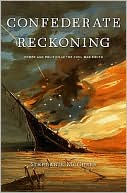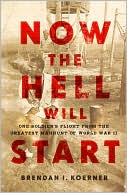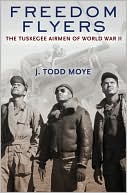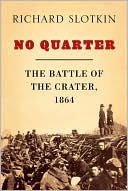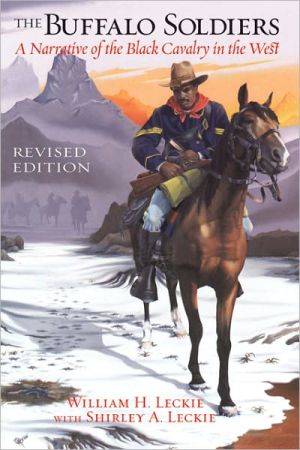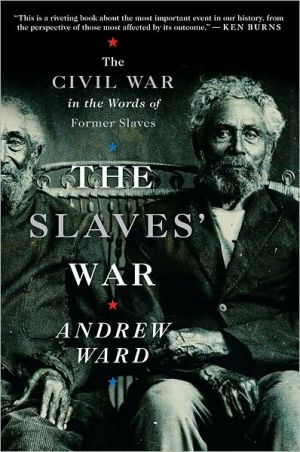Black Americans in the Revolutionary Era: A Brief History with Documents (Bedford Series in History and Culture)
Providing a fresh look at liberty and freedom in the Revolutionary era from the perspective of black Americans, Black Americans in the Revolutionary Era examines the conditions of black American life during this time and the ways in which Revolutionary rhetoric about liberty provided African Americans with the language and inspiration for advancing their cause. About the Author Woody Holton (Ph.D., Duke University) is an associate professor at the University of Richmond in...
Search in google:
In this fresh look at liberty and freedom in the Revolutionary era from the perspective of black Americans, Woody Holton recounts the experiences of slaves who seized freedom by joining the British as well as those — slave and free — who served in Patriot military forces. Holton’s introduction examines the conditions of black American life on the eve of colonial independence and the ways in which Revolutionary rhetoric about liberty provided African Americans with the language and inspiration for advancing their cause. Despite the rhetoric, however, most black Americans remained enslaved after the Revolution. The introduction outlines ways African Americans influenced the course of the Revolution and continued to be affected by its aftermath. Amplifying these themes are nearly forty documents — including personal narratives, petitions, letters, poems, advertisements, pension applications, and images — that testify to the diverse goals and actions of African Americans during the Revolutionary era. Document headnotes and annotations, a chronology, questions for consideration, a selected bibliography, and index offer additional pedagogical support.
Foreword Preface PART ONE: IntroductionBlack Americans on the Eve of White Independence Black Americans and the Coming of the American Revolution African Americans in the Revolutionary War Challenging Slavery Revolutionary Legacies PART TWO: The Documents Chapter 1: Black Americans and the Coming of the American Revolution, 1750–1775 Fugitive Slave Advertisements, 1750–1774 Briton Hammon, A Narrative of the Uncommon Sufferings, and Surprising Deliverance, of Briton Hammon, A Negro Man, 1760 James Otis, The Rights of the British Colonies Asserted and Proved, 1764 Landon Carter, Plantation Diary, March 22, 1770 "Felix," Petition to Governor, Council, and House of Representatives of Massachusetts, January 6, 1773 Massachusetts African Americans, Petition to Local Representatives, April 20, 1773 Patrick Henry, Letter to Robert Pleasants, January 18, 1773 Phillis Wheatley, Poems on Various Subjects, Religious and Moral, 1773 On the Death of the Rev. Mr. George WhitefieldOn Being Brought from Africa to AmericaPhillis Wheatley, Letter to Samsom Occom, February 11, 1774 Chapter 2: African Americans in the Revolutionary War, 1775–1783Andrew Estave, Letter in the Virginia Gazette, July 20, 1775 John Murray, Lord Dunmore, A Proclamation, November 7, 1775 Wartime Fugitive Slave Advertisements, 1776–1782 Extract of a Letter from Monmouth County, June 21, 1780 Sergeant Murphy Steele, Deposition Reporting a Supernatural Encounter, August 16, 1781 John Trumbull, Battle of Bunker’s Hill, 1786 Jacob Francis, Revolutionary War Pension Application, 1836 Chapter 3: Challenging Slavery, 1776–1787Thomas Jefferson, Original Rough Draft of the Declaration of Independence, 1776 New Hampshire Slaves, Freedom Petition, November 12, 1779 Free Blacks in Dartmouth, Massachusetts, Petition against Taxation without Representation, February 10, 1780 William Cushing, Charge to the Jury in the Case of Quok Walker, 1783 Susan Sedgwick, Elizabeth Freeman, 1811 Chapter 4: Revolutionary Legacies, 1785–1855John Marrant, Narrative, July 18, 1785 Citizens of Halifax County, Virginia, Petition Defending Slavery, November 10, 1785 Prince Hall and Other "African Blacks," Petition to the Massachusetts Legislature for Return to Africa, January 4, 1787 Free African Society, Charter, April 12, 1787 Thomas Jefferson, Notes on the State of Virginia, 1788 Rose Fortune, 1780s? Benjamin Banneker and Thomas Jefferson, Exchange of Letters, August 19 and 30, 1791 Saul, Petition to the Virginia State Legislature, October 9, 1792 David George, An Account of the Life of Mr. David George from Sierra Leone, Africa, Given by Himself, 1793 Boston King, Memoirs of the Life of Boston King, A Black Preachers, Written by Himself, July 4, 1796 Freemen from North Carolina, Petition to Congress, January 23, 1797 Prosser’s Ben, Mr. Price’s John, and Ben Woolfolk, Testimony against Gabriel, October 6, 1800 Raphaelle Peale, Absalom Jones, 1810 Paul Cuffee, Memoir of Captain Paul Cuffee, October 1811 William C. Nell, Colored Patriots of the American Revolution, 1855 APPENDIXES A Chronology of Black Americans in the Revolutionary Era Questions for Consideration Selected Bibliography Index

